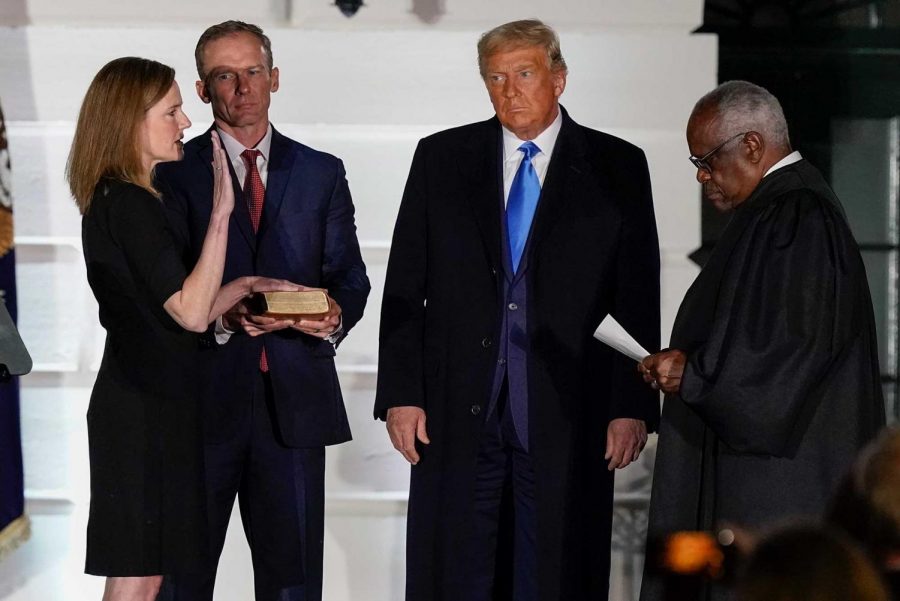Senate Confirms Amy Coney Barrett to the Supreme Court
On Monday, Oct. 26, Amy Coney Barrett was officially sworn into the Supreme Court shortly after the Senate confirmed her nomination with a 52-48 vote.
During the ceremony, President Trump told Barrett, “As you take your oath tonight, the legacy of our ancestors falls to you. The American people put their trust in you and their faith in you as you take up the task of defending our laws, our Constitution, and this country we all love.”
Supreme Court Justice Clarence Thomas swore Barrett in under a constitutional oath at the White House event. On Tuesday of that same week, Chief Justice John Roberts administered her judicial oath swearing-in ceremony.
Addressing the American people, Barret said, “My fellow Americans, even though we judges don’t face elections, we still work for you. It is your Constitution that establishes the rule of law and the judicial independence that is so central to it. The oath I have solemnly taken tonight means at its core that I will do my job without any fear of favor and that I will do so independently of both political branches and of my own preferences.”
Barrett will fill the seat of the late Justice Ruth Bader Ginsburg. Despite the attempt of Senate Democrats to delay the confirmation process until after the election, the Republican-controlled Senate was able to gather a majority vote.
Democrats have expressed their disapproval of Barrett’s nomination after pointing out the hypocrisy of the Republican Party. In 2016, the Republican-led Senate refused to hold hearings for President Obama’s nominee, Merrick Garland, eight months before that year’s elections. Referring to the Republicans’ contradictory actions, Senate Minority leader Chuck Schumer labeled the nomination process as a “cynical power grab.”
“Nearly every Republican in this chamber led by the majority leader four years ago refused to even consider the Supreme Court nomination of a Democratic president on the grounds… that we should wait until after the presidential election because the American people deserved a voice in the selection of their next justice,” Schumer said.
From 2002 to 2017, Barrett was a professor at the University of Notre Dame, where she taught courses on constitutional law, federal courts, etc. She is a devout Roman Catholic, deeply rooted in her faith. This has led to concerns about whether she can separate her religious beliefs from her duties as a federal judge.
Barret favors a strict interpretation of the Constitution as she is considered by many to be a “textualist”—someone who believes in applying the original logic of the framers to the situation at hand.
Many supporters of Roe v. Wade are concerned that Barrett will move to overturn this key court case that legalized abortion and established a woman’s right to choose. However, she has not explicitly expressed whether she would move in this direction or not.
Barrett’s confirmation will solidify a 6-3 conservative majority on the high court, alarming Democrats. This has brought up the issue of court-packing or expanding the number of justices. Neither Democratic Presidential candidate Joe Biden nor his Vice Presidential pick Kamala Harris have explicitly stated whether or not they would pack the court.

Sanaz is a senior at Aliso Niguel who has been in newspaper since sophomore year and is one of the senior editors this year. Other school activities she...









